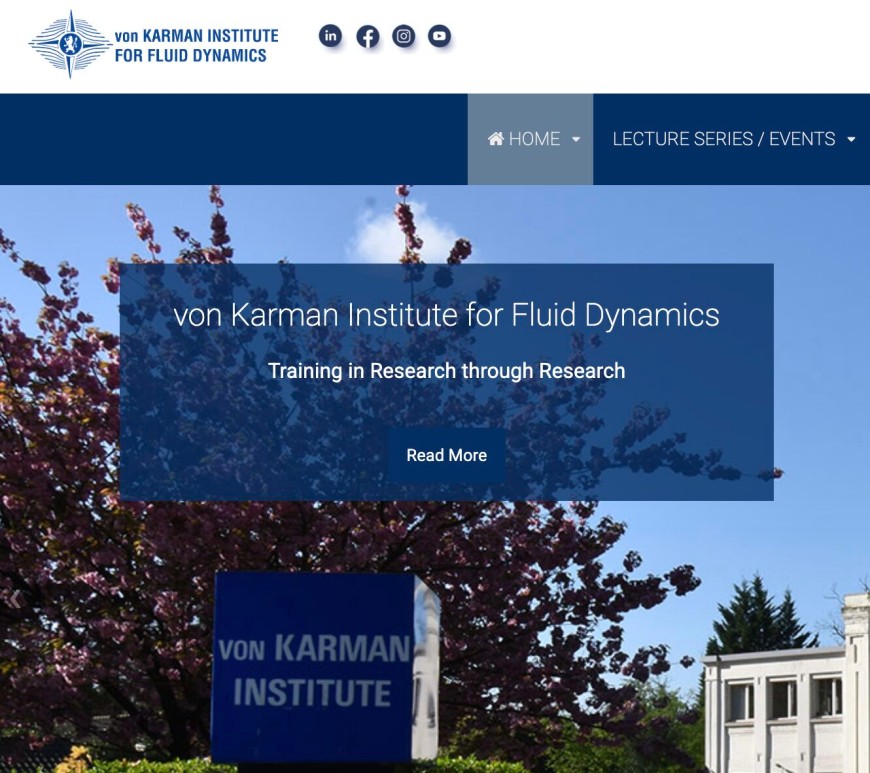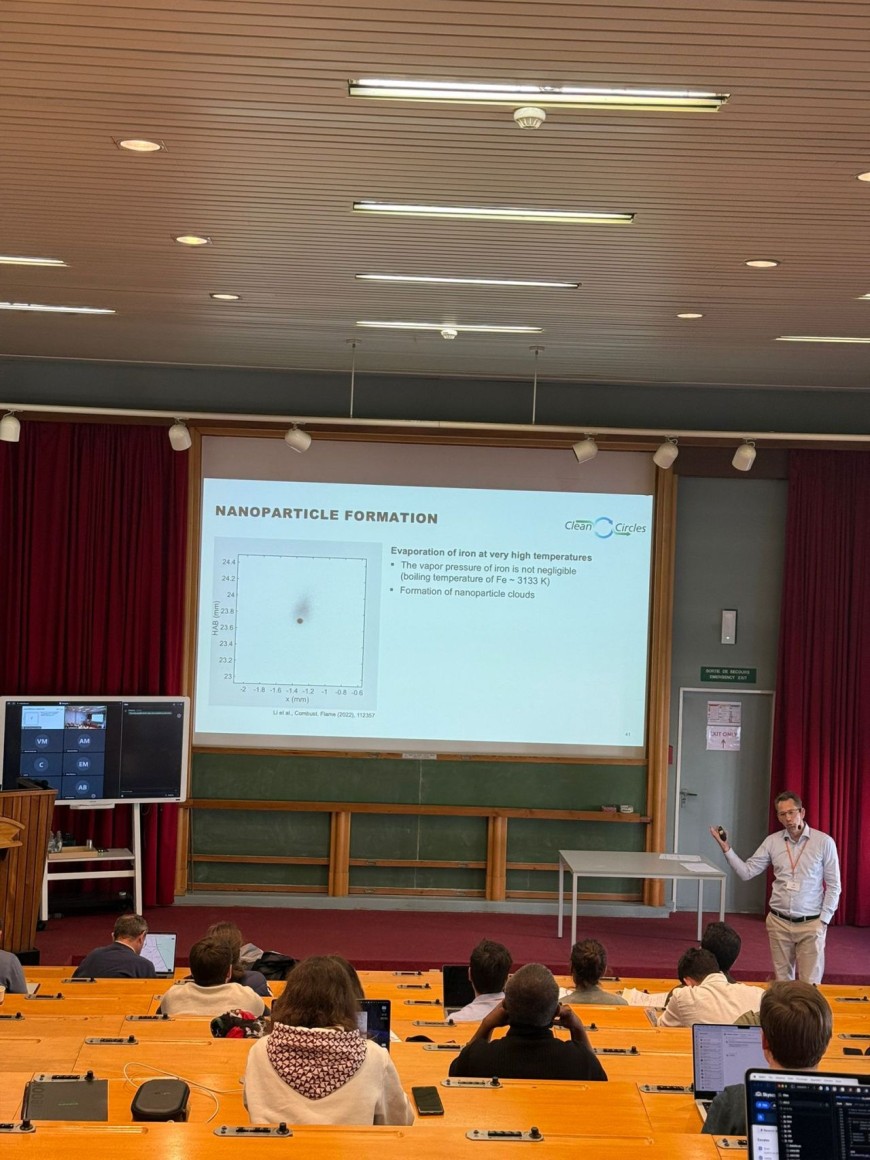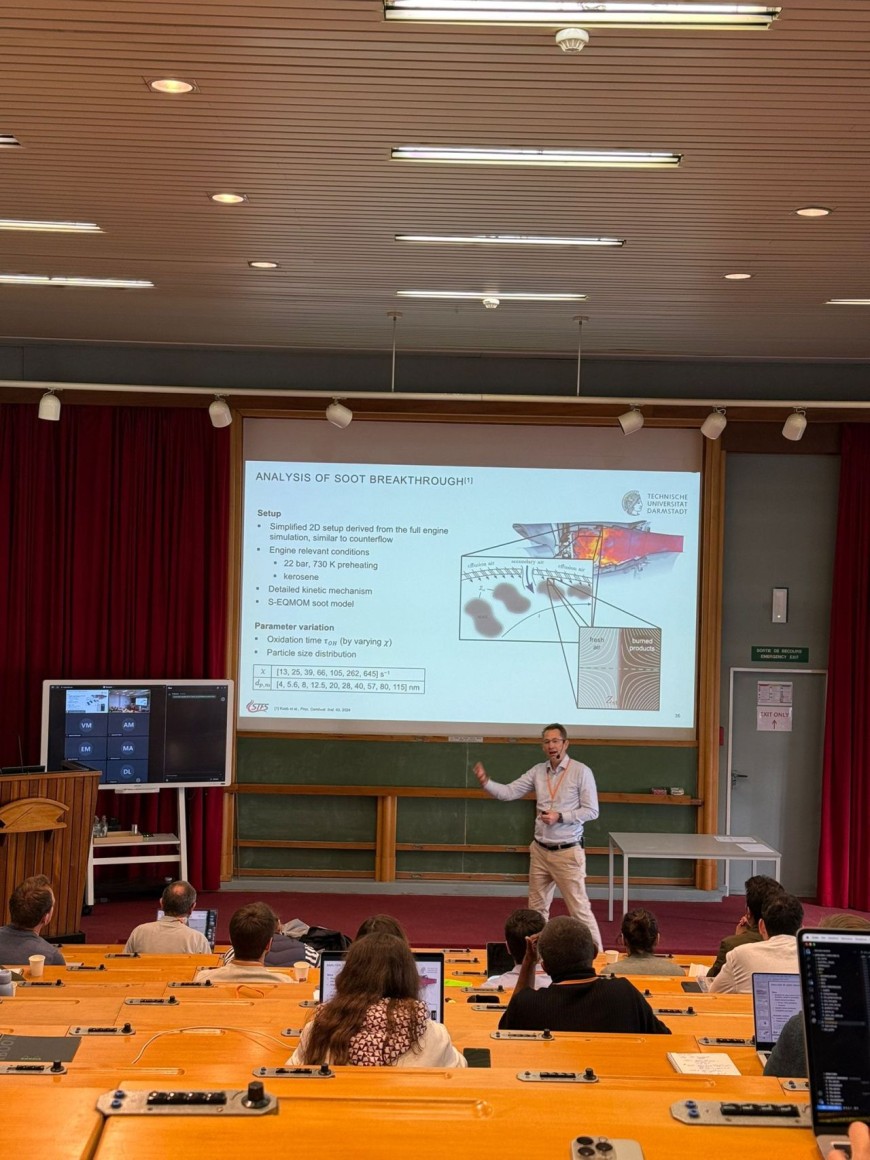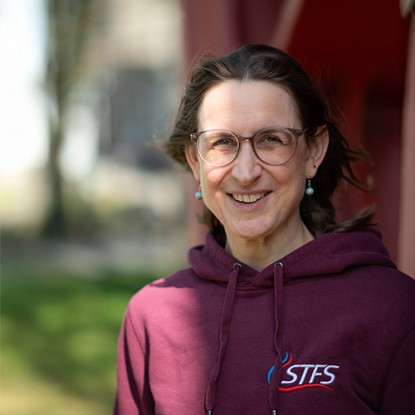Giving lectures at von Karman Institute – a rewarding experience as always
Experience Report
13.06.2025
I have had the pleasure of contributing to the Turbulent Combustion lecture series at the von Karman Institute for many years. It has become a renowned forum for presenting cutting-edge combustion research to the next generation of scientists.
The Turbulent Combustion lecture series at the von Karman Institute (https://lnkd.in/e5_DCrCP), organized by Luc Vervisch and Denis Veynante, has become a renowned forum to present cutting-edge combustion research to the next generation of combustion scientists. I’ve had the pleasure of contributing to this series for many years.
This year, I gave three lectures covering topics in:
- Solid fuel combustion – covering both biomass and metals (Fe, Al)
- Nanoparticle formation in flames
- Chemical reactor networks (CRNs) – a reduced-order modeling strategy
The content spanned a multi-scale journey: from individual particles (nanometers to micrometers) all the way to the simulation of full-scale reactors at the meter level.
That’s a scale gap of over nine orders of magnitude — a true multi-scale and multi-physics challenge!
Simulating entire reactors means leaving the academic ivory tower of idealized unit problems. These systems involve strongly coupled processes, including turbulent flows, phase changes, complex transport phenomena, and heterogeneous and homogeneous reactions. This is what we call multi-physics.
And not everything requires brute-force supercomputing, as needed in Large Eddy Simulations (LES).
Reduced-order models, such as Chemical Reactor Networks (CRNs), can offer deep insights — especially when combined with methods for Bayesian model calibration and model error quantification, a topic I’m currently exploring in collaboration with colleagues in applied mathematics.
I am always grateful for the stimulating discussions and the vibrant VKI community! Thank you Jeroen van Beeck and Delphine Laboureur for hosting me.




